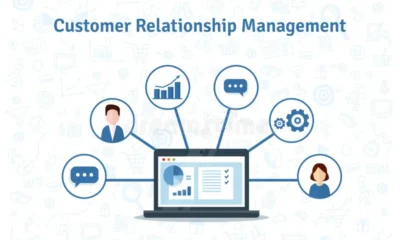Finance
Best Home Renovation Financing Options

Kicking off with best home renovation financing options, this opening paragraph is designed to captivate and engage the readers, providing an overview of the various financing options available to fund home improvement projects. From personal loans to home equity loans, each option offers unique advantages and considerations tailored to individual needs and circumstances.
Overview of Home Renovation Financing Options

When it comes to renovating your home, choosing the right financing option is crucial to ensure your project's success. There are various financing options available, each with its own pros and cons, tailored to different financial needs and circumstances.
Personal Loans
Personal loans are a common choice for homeowners looking to finance their renovation projects. These loans typically have fixed interest rates and repayment terms, making it easier to budget for the project's costs. However, personal loans may have higher interest rates compared to other financing options.
Home Equity Loans
Home equity loans allow homeowners to borrow against the equity in their home. This type of financing often comes with lower interest rates compared to personal loans, making it a cost-effective option for larger renovation projects. However, failing to repay a home equity loan could result in the loss of your home.
HELOCs (Home Equity Line of Credit)
HELOCs provide homeowners with a line of credit based on the equity in their home. This flexible financing option allows you to borrow as needed and only pay interest on the amount you use. However, HELOCs typically have variable interest rates, which can result in higher payments if rates increase.
Credit Cards
Using credit cards for home renovations can be convenient for smaller projects or emergency repairs. However, credit cards often come with high-interest rates, which can lead to substantial debt if not managed carefully. It's essential to consider the long-term financial implications before relying on credit cards for renovation financing.
Personal Loans

When it comes to financing home renovations, personal loans can be a popular option for homeowners looking to fund their projects. These loans are unsecured, meaning they do not require any collateral, and can provide the flexibility needed to tackle various renovation expenses.
How Personal Loans Work
Personal loans for home renovations are typically installment loans with fixed monthly payments over a set period. Borrowers receive a lump sum upfront and repay the loan, along with interest, over time. These loans can offer competitive interest rates and terms based on the borrower's creditworthiness.
Application Process, Eligibility Criteria, and Interest Rates
To apply for a personal loan for home renovations, borrowers typically need to fill out an application with a lender, providing information about their income, credit history, and the renovation project. Eligibility criteria may vary but generally include a good credit score, stable income, and low debt-to-income ratio.Interest rates for personal loans can range from around 6% to 36%, depending on the lender, borrower's creditworthiness, and loan terms.
It's essential to shop around and compare offers from different lenders to find the best rates and terms for your renovation project.
Reputable Lenders Offering Personal Loans
Several reputable lenders offer personal loans specifically designed for home improvement projects. Some well-known lenders include:
LightStream
Offers unsecured personal loans with competitive rates for various home renovation projects.
SoFi
Provides personal loans with no fees and flexible repayment options for home improvements.
Marcus by Goldman Sachs
Offers fixed-rate personal loans for home renovations with no prepayment penalties.These lenders are known for their competitive rates, transparent terms, and excellent customer service, making them popular choices for homeowners seeking financing for their renovation projects.
Home Equity Loans
When it comes to financing home renovation projects, one option that homeowners often consider is a home equity loan. This type of loan allows you to borrow money using the equity in your home as collateral.
Pros and Cons of Home Equity Loans
- Pros:One of the main advantages of a home equity loan is that it typically offers lower interest rates compared to personal loans or credit cards. This can result in significant cost savings over time. Additionally, the interest paid on a home equity loan may be tax-deductible, making it a financially attractive option for many homeowners.
- Cons:On the downside, taking out a home equity loan means putting your home at risk. If you fail to make timely payments, you could face foreclosure, putting your home in jeopardy. Another consideration is that you are essentially borrowing against the equity you have built up in your home, which can impact your overall net worth.
Risks of Using Home Equity as Collateral
When using your home equity as collateral for a loan, it's important to be aware of the risks involved. If property values decline, you could end up owing more than your home is worth, a situation known as being "underwater" on your mortgage.
This can make it difficult to sell your home or refinance in the future. Additionally, if you experience financial hardship and are unable to make your loan payments, you could potentially lose your home.
Home Equity Line of Credit (HELOC)
A Home Equity Line of Credit, commonly known as HELOC, is a revolving line of credit that allows homeowners to borrow money against the equity of their home. Unlike a traditional home equity loan where you receive a lump sum upfront, a HELOC works more like a credit card with a predetermined credit limit that you can borrow from as needed.
Benefits of a HELOC for Financing Home Renovations
A HELOC offers several advantages when it comes to financing home renovations:
- Flexibility: With a HELOC, you can borrow only the amount you need, when you need it, giving you flexibility in managing your renovation expenses.
- Lower Interest Rates: HELOCs typically have lower interest rates compared to personal loans or credit cards, making it a cost-effective financing option.
- Tax Deductibility: In some cases, the interest paid on a HELOC may be tax-deductible if the funds are used for home improvements. It's essential to consult with a tax advisor to understand the eligibility criteria.
- Access to Funds Over Time: As a revolving line of credit, you can borrow, repay, and borrow again, providing ongoing access to funds for multiple renovation projects.
Tips to Maximize the Benefits of a HELOC While Minimizing Risks
- Research Lenders: Compare different lenders offering HELOCs to find the best terms, interest rates, and repayment options.
- Create a Budget: Determine the total cost of your renovation project and only borrow what you need to avoid overextending your finances.
- Maintain Good Credit: A higher credit score can help you qualify for lower interest rates and better terms on your HELOC.
- Regularly Monitor Your Spending: Keep track of your expenses and payments to ensure you stay within your budget and repayment schedule.
- Consider Repayment Strategies: Establish a plan to repay the borrowed amount within a reasonable timeframe to avoid excessive interest costs.
Credit Cards

Credit cards can be a convenient option for financing smaller home renovation projects. They offer flexibility and quick access to funds without the need for a lengthy approval process. However, it is essential to consider the advantages and disadvantages of using credit cards compared to other financing methods before making a decision.
Advantages and Disadvantages
- Advantages:
- Convenience: Credit cards provide instant access to funds, making it easy to purchase materials or pay contractors for small renovation projects.
- Rewards: Some credit cards offer cashback rewards or points for home improvement purchases, providing additional benefits for using them as a financing option.
- No collateral required: Unlike home equity loans or HELOCs, credit cards do not require your home as collateral, reducing the risk of losing your property.
- Disadvantages:
- High-interest rates: Credit cards typically have higher interest rates compared to personal loans or home equity options, potentially leading to increased costs if not paid off quickly.
- Limited credit availability: Depending on your credit limit, credit cards may not provide enough funds for larger renovation projects, leading to multiple cards or high balances.
- Impact on credit score: Utilizing a high percentage of your available credit can negatively impact your credit score, affecting future borrowing opportunities.
Recommendations for Responsible Use
- Set a budget: Before using a credit card for home improvements, establish a budget to ensure you can afford to repay the charges without accumulating excessive debt.
- Compare interest rates: Research different credit card options to find the lowest interest rate possible, minimizing the overall cost of financing your renovation project.
- Pay more than the minimum: To avoid high-interest charges, aim to pay more than the minimum payment each month, reducing the balance and interest costs over time.
Ultimate Conclusion
Wrapping up our discussion on the best home renovation financing options, it's clear that making informed decisions about financing is crucial for the success of your home improvement projects. By weighing the pros and cons of personal loans, home equity loans, HELOCs, and credit cards, you can choose the option that best suits your financial goals and renovation needs.
FAQs
Can I use a personal loan for a large-scale home renovation project?
Personal loans can be a suitable option for smaller to medium-sized renovation projects. For larger projects, you may want to explore other financing avenues like home equity loans or HELOCs.
What are the risks associated with using home equity as collateral for a loan?
One major risk is the potential loss of your home if you default on the loan. It's essential to carefully consider your ability to repay the loan before using your home equity as collateral.
Are credit cards a recommended option for financing home renovations?
Credit cards can be convenient for smaller projects with manageable costs. However, their high-interest rates make them less ideal for larger renovation expenses unless you can pay off the balance quickly.

-

 General8 months ago
General8 months agoBest Insurance Lawyers Near Me for Claim Disputes: Your Ultimate Guide to Legal Assistance
-

 General8 months ago
General8 months agoNavigating Insurance Claim Denial Lawyers Near Me
-

 Design8 months ago
Design8 months agoOutdoor Design Essentials for a Holistic Lifestyle: Integrating CRM Automation for Lifestyle eCommerce Brands
-

 General8 months ago
General8 months agoWellness Lifestyle and Outdoor Living Integration Tips: Modern Farmhouse Exterior Ideas for Luxury Lifestyle Homes
-

 General8 months ago
General8 months agoThe Best Business Insurance for Interior Designers: A Comprehensive Guide
-

 General8 months ago
General8 months agoCrafting a Comprehensive Guide to Medical Malpractice and Insurance Settlement Law Firms
-

 General8 months ago
General8 months agoHow Exterior Renovations Affect Your Home Insurance Rates: A Comprehensive Guide
-

 General7 months ago
General7 months agoDigital health trends transforming Asia in 2025: A Glimpse into the Future of Healthcare




